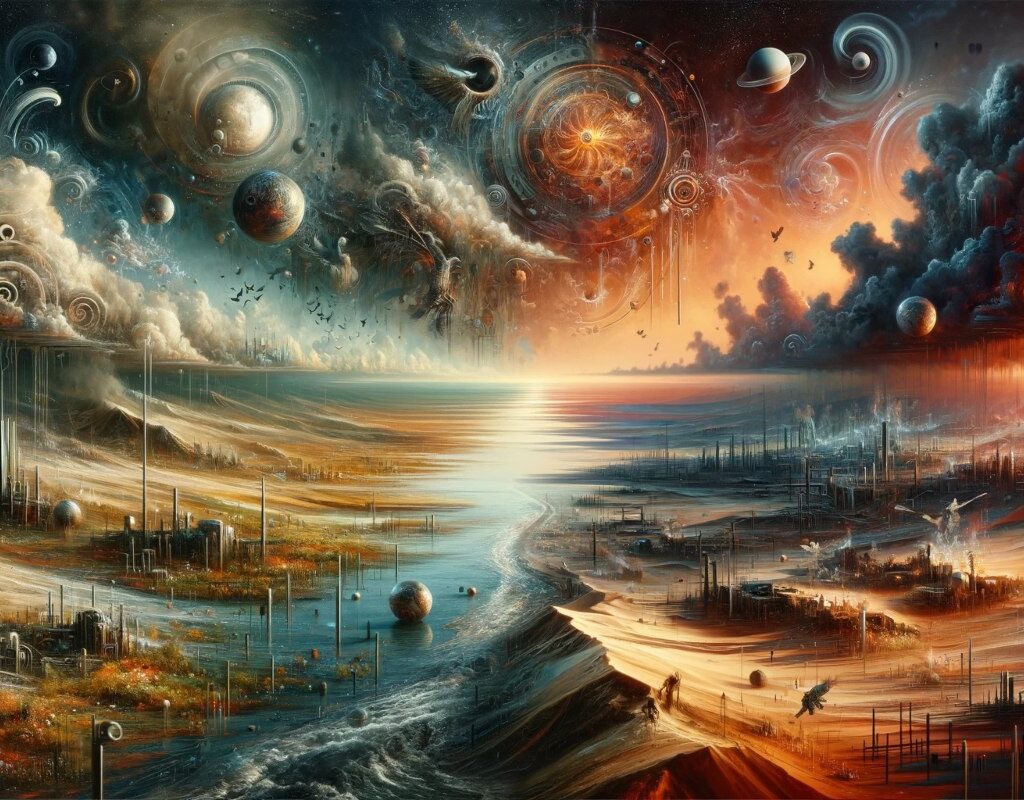The concept of the world’s end is not novel. Throughout history, humanity has demonstrated a tendency to fear, yet paradoxically, be drawn to the idea of its annihilation. This duality is rooted in a fundamental fear of the unknown and uncertainty.
Between Fear and Fascination: Our Obsession with the End of the World
Change, Uncertainty, and Apocalypse
The Complex Relationship of Humankind with Its Annihilation
In a rapidly changing world, where social, political, and technological structures are in constant flux, the end of the world emerges as the ultimate change, one that could reconfigure or end all known existence.
This fear is amplified by the human inherent difficulty in dealing with change. While change is the only constant in nature, the human mind seeks security in permanence.
This quest for stability is evident in our tendency to construct stable and predictable realities. However, reality challenges this notion, presenting an ever-evolving landscape beyond our control.
The Apocalypse as a Mirror: Psychological Reflections on Our Fears and Fascinations
Beyond the End: How Apocalyptic Predictions Reveal Our Internal Insecurities
Prognostications about the world’s end act as a mirror to our insecurities and fears. They represent the ultimate change, one that ends all current concerns and struggles. Yet, they also unveil a paradox: though we fear change, we are fascinated by it.
Thus, the idea of the world’s end becomes a metaphor for our internal struggle with impermanence and transformation.
From a psychological perspective, the obsession with the apocalypse can be seen as a defense mechanism. By projecting our fears onto an external catastrophic event, we avoid confronting everyday anxieties and challenges. This externalization of fear allows us, in some way, to feel an illusory control over the uncontrollable.
Beyond Reason
The Role of Spirituality in Our Fight Against Apocalyptic Anxieties
Spirituality and personal beliefs play a crucial role in how we manage these anxieties. A solely rational approach can lead us into a labyrinth of unanswered questions, heightening our sense of bewilderment.
Conversely, a firm foundation in spiritual beliefs can offer a sense of purpose and direction, helping to alleviate the distress that stems from uncertainty.
Additionally, personal work and the development of emotional resilience are vital. Recognizing that we are active constructors of our reality empowers us. By strengthening our ability to adapt and accept change, we diminish the influence of catastrophic predictions and prepare to face the future with a more balanced outlook.
Our obsession with the end of the world reflects an intrinsic dilemma of the human condition: the fear of change and the unknown. Accepting that change is a constant and working on our ability to adapt to it, balancing reason with spirituality, might be the key to living a fuller and less fearful life.





